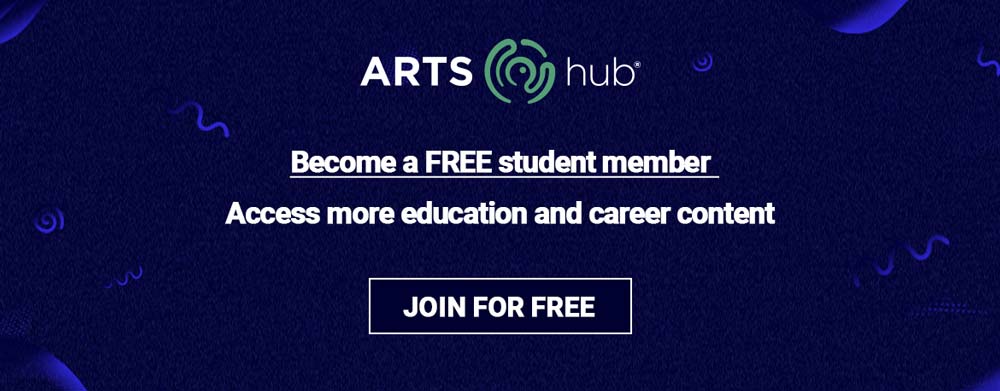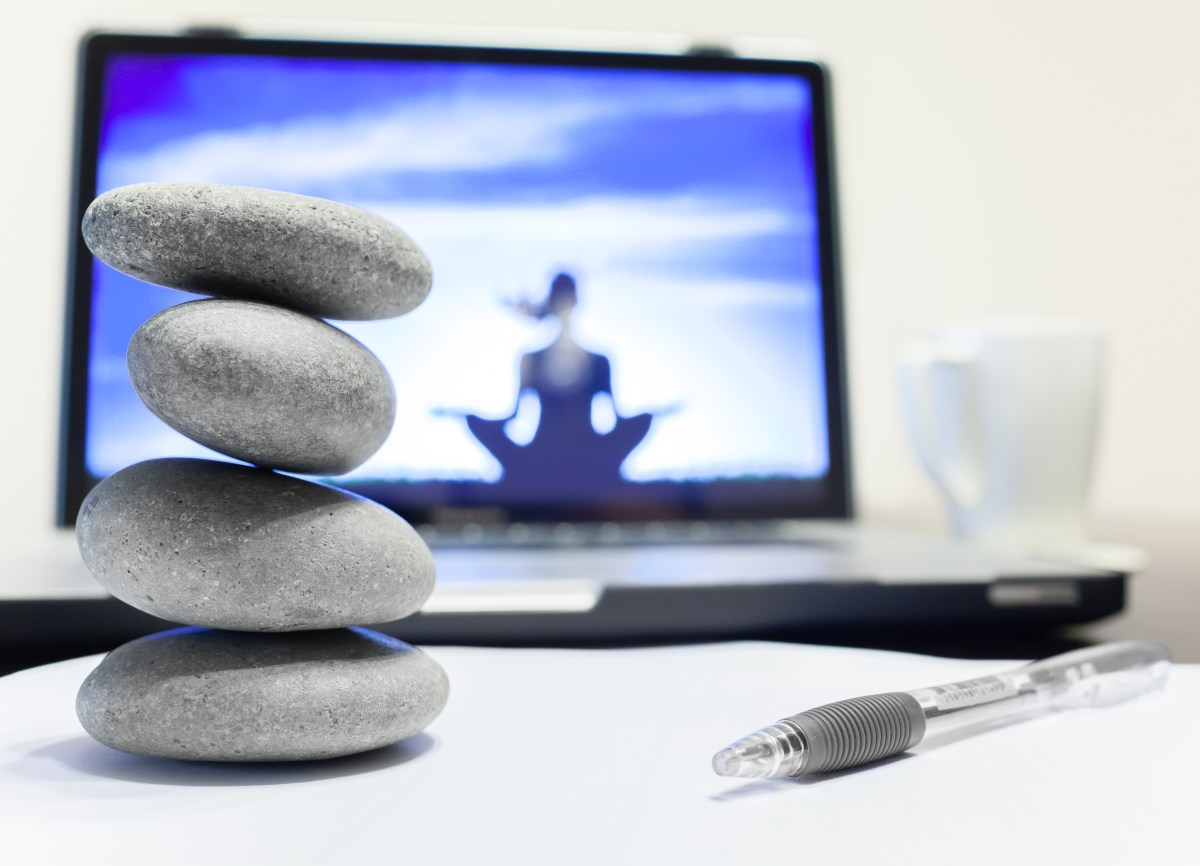Here’s the problem: social media is designed to be highly addictive. Finding a healthy sweet spot is going to be difficult – some may say, impossible – when we’re fighting against algorithms that give us hits of sweet dopamine every time we log on, trying to keep us chained to screens night and day so that advertisers can sell to us.
Kids around the world are literally getting elongated eyeballs and the global average time spent on social media is more than 150 minutes a day.
So if you’re looking for inner peace, it’s tempting to shun social media entirely. For some people that may be the answer. And, for many, it’s healthy to go quiet for set periods of time – sabbaths and sabbaticals. But, for many others, such purity is neither achievable nor desirable. Not only do we enjoy sharing and connecting with friends and family, but professionally, as artists, writers and creatives, using social media is essential if we want people to find us.
As an arts journalist and editor, I can tell you that when I’m researching a story or trying to contact you, your social media often gives me more up-to-date information and insights than your official website – if you even have a website. And whether you like it or not, time-poor media outlets are now embedding Instagram stories and tweets in lieu of hard-to-find official photographs or statements.
In an ideal world, we would use social media without addiction and according to our own values and pleasures. As creatives, we would share generously but non-compulsively, yet find ourselves with hundreds of thousands of followers who immediately convert to buyers or engaged audiences.
The reality, for most, is an anxious slog. Yes, there are some real joys and new connections – some actual communities and political momentum created through hashtags and mutual interests. But there’s often disappointing grind: a lot of time spent crafting posts that are met with a couple of “likes” and comments from our besties, and the regular sound of crickets. Then comes the anxious overthinking of our “image” or – yuck – our “brand”.
With social media, there’s the potential for hideous social embarrassment or even being “cancelled” if we get it wrong, go too hard or get big-headed. As a result, many of us resemble little rabbits, timidly poking our heads out of our holes when we’ve got something to share, but generally lurking around the edges, consuming an all-sorts combination of inspiring, informative, enraging and banal “content”.
We know we should put it down and spend more time making actual art. And we will, in just a few minutes…
Read: Nine ways to help you deal with creative rejection
In search of inner peace
In search of inner peace myself – and with the vague idea that an article on ‘the zen of using social media’ may get some clicks – I sought out the work of Jon Kabat-Zin. Operating at the intersection of Western science and Buddhism, Kabat-Zin is known as “the father of mindfulness” – don’t yawn! Kabat-Zin is the real deal. He proposes seven pillars, or “attitudes” of mindfulness that, if adopted, help to reduce stress, anxiety and pain. And social media is very often stressful, anxiety-provoking and painful.
It turns out that these seven attitudes can be applied to almost any situation to yield a few moments of peace, perspective and inner spaciousness. So let’s try applying them to social media.
Social media and the seven pillars of mindfulness
1. Patience
Don’t panic when you hear crickets, and don’t stress if it takes a while to get the hang of a new social media form. You don’t have to be an expert all at once. According to Kabat-Zin’s website, ‘Patience is a recognition that mindfulness requires time and space. It is not a practice where you will see immediate results, and you should not let this discourage you.’
Similarly, have patience with yourself when you’ve spent too much time scrolling. Start fresh tomorrow, and remember the algorithms are against you. Setting timers and limits on socials is a great idea.
2. Beginner’s mind
Kabat-Zin says: ‘Those practising mindfulness should aim to view things as a beginner as if you are seeing things for the first time. Try to enter each practice free from any preconceived notions or expectations.’
Whether you’re trying to learn how to use TikTok or struggling to create a reel, it’s easy to feel overwhelmed by the technology and/or disgusted at the banality of what we’ve all become.
Keeping a beginner’s mind lets us try something new without the pressure of being immediately “good at it”. Stay humble, but don’t give up if the platform you’re experimenting with is something you really want or need to explore. Lifelong learning keeps us young. And even if you eventually swear off a particular platform, don’t let it be because of fear of failure.
3. Non-striving
‘Non-striving is about letting go of the results and attempting to see and accept things as they are.’
Social media managers have to look at stats and measure results. Most of us don’t need to. Huddling over our phones waiting for likes and comments is pathetic and desperate, and nearly everybody does it sometimes. Non-striving may mean trying to share from a place of really contributing and adding value to the conversation – of actually having something to say instead of just making noise out of a need for affirmation or applause. It’s a tricky balancing act, this non-striving business – and it’s the absolute opposite of not trying at all.
4. Non-judging
‘Mindfulness is a practice without judgment. The goal is to become an unbiased, impartial witness to your own thoughts and experiences by focusing on the present moment.’
Social media is a notoriously judgy place. Even “liking” something is a judgement. Being entirely without discernment is not a worthy goal for any moral human being, but non-judging as an attitude we can apply to our own experience in a particular moment gives us time to arrive at a considered position. Quite often the urge is to rush to judge without all the information – it’s an easy reflex to pile on, follow the crowd or seek attention. Even suspending judgement for a few moments gives room for us to pause and notice our own triggers, motivations and nervous system overloads.
Similarly, non-judging is an attitude we can adopt when we look back on our horrifically earnest early Facebook posts. Cringe. Compassion please, even towards ourselves.
5. Trust
‘Trust is central to mindfulness. Through mindfulness, you can learn to trust yourself and your feelings.’
This is a hard one. Trust in what? Trust in the fact that even if you get doxed or cancelled, the world will keep on spinning? But there’s something in the idea of trusting that if we are sharing from a sincere place we will find like-minded people.
As marketing guru and thought leader Seth Godin likes to say, success is all about finding the minimum viable audience for whatever it is that you’re selling. Having a million unengaged followers is nowhere near as good as having 200 serious buyers or readers. Work out what your minimum viable audience is, and focus on adding value to their lives.
As Godin writes:
‘Two things happen when you delight your minimum viable audience:
- you discover it’s a lot larger group than you expected, and
- they tell the others.
On the other hand, if you aim for mass (another word for average), you’ll probably create something average. Which gets you not very far.’
Another way of looking at trust is that trusting our own feelings may lead you to a personal truth: that it’s time to log out for a while or put your phone in the freezer.
6. Acceptance
‘Acceptance is being open and receptive to your thoughts and feelings, whatever they may be.’
It’s painful when social media goes wrong or doesn’t work the way we’d hoped. But resistance to the facts only creates more pain around the original wound. Let it be. Do something else.
I once spent hours aggressively “reporting” ads on Instagram, tagging them as “offensive” because I was so angry at the increasingly avaricious business model. How much better it would have been to put my phone down, go for a walk or write a poem.
7. Letting go
Kabat-Zin’s website says: ‘If you practise mindfulness regularly, you’ll likely begin to notice common thought patterns. Letting go is the act of recognising these thought patterns, whether negative or positive, observing them as they are, and then letting them go.’
This attitude asks us to consider how attached we are to our social media feeds and profiles. Letting go may mean treating it all as a game: playing to win, but without seriousness. An attitude of playful curiosity can serve us well here. But again, letting go may mean really, literally letting it go and shutting social media activity down completely.
Asserting our agency in the face of abusive technology is still a very real option, thank goodness.
Good luck in finding your sweet spot!
But wait… learn how to use social media to promote your creative business
Assuming you haven’t deleted all your apps in search of inner peace, don’t forget to tune in to ArtsHub‘s free webinar to learn how to use social media effectively for your arts practice or organisation.
The latest free webinar in the Creative Exchange program, co-produced by ArtsHub and Creative Victoria, sees a trio of panellists (Atong Atem, John Burgess and Anna Horan), moderated by Kate Mulqueen, all ‘sharing their know-how to assist you in picking the right platforms, amassing followers and getting cut-through in an increasingly cluttered and ever-changing social media landscape.’ Register here for the event to be held: 11am to 12 noon, Thursday 30 November 2023 or catch it later online.






